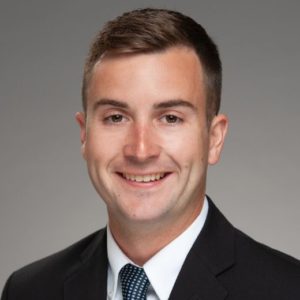2023 Outpatient Prospective Payment System and Ambulatory Surgical Center Proposed Rule

On July 15, 2022, the Centers for Medicare & Medicaid Services (CMS) issued proposed Medicare payment rates for hospital outpatient and ambulatory surgical center (ASC) services for calendar year 2023 (CY2023). This annual CMS issued proposed rule will have a 60-day comment period, which will end on September 13, 2022. The Final Rule will be issued in early November 2022.
Here is What is Being Proposed
Payment Rates
The payment rates and policies for the Outpatient Prospective Payment System (OPPS) and the ASC payment system are reviewed by CMS annually, and any required revisions are proposed. For hospitals that comply with applicable quality reporting standards, CMS is proposing to increase OPPS payment rates for CY2023 by 2.7 percent. The projected hospital market basket percentage rise of 3.1 percent, which has been adjusted for productivity, is the basis for this update.
CMS is proposing to adjust the ASC rates for CY2023 by 2.7 percent for ASCs that achieve pertinent quality reporting standards using the proposed hospital market basket update. The predicted hospital market basket percentage rise of 3.1 percent, which has been adjusted for productivity, is the basis for this update.
Remote Behavioral Health Services
Crucial Takeaway: CMS is proposing to designate mental health services delivered via telehealth by hospital clinical staff to a beneficiary at home as a covered outpatient service.
In response to the COVID-19 Public Health Emergency (PHE), CMS undertook emergency rulemaking to implement a number of flexibilities to support providers and patient care during the pandemic. Many of the flexibilities will expire at the conclusion of the PHE, including one that allows clinical staff of hospital outpatient departments to provide remote behavioral health services to patients in their homes.
Competition
Crucial Takeaway: CMS is seeking information from the public on how data collected by CMS can be used to promote competition across the healthcare system
A comprehensive government initiative to foster competition in the American economy was developed by President Biden’s Executive Order on Promoting Competition in the American Economy. This made it clear that hospitals in consolidated markets charge significantly higher costs, and hospital consolidation has left many locations, particularly rural towns, with few viable options for convenient and cheap health care services. In response, CMS disclosed information this year on hospital and skilled nursing facility mergers, acquisitions, consolidations and ownership changes dating back to 2016, and will continue to update the information on a quarterly basis moving forward. The goal of this data release was to increase transparency so that the general public and scholars could better understand how mergers, acquisitions, consolidations and ownership changes affect local health care affordability.
In response to that executive order, CMS is looking for information from the public on how data collected by CMS can be used to promote competition across the healthcare system, including public comments on the following:
- What additional data reported to the Medicare Provider Enrollment, Chain and Ownership System (PECOS) would be helpful to release to the public and researchers studying the impacts of provider consolidations, mergers, acquisitions and changes in ownership on the affordability and availability of medical care.
- Whether CMS should release data on mergers, acquisitions, consolidations and changes in ownership that have taken place for healthcare providers. CMS has previously published this information for hospitals and nursing homes.
- What other additional information collected by CMS would be helpful to the public and researchers studying the impacts of mergers, acquisitions, consolidations and changes in ownership.
- Whether data for transactions recorded in PECOS prior to 2016 would be useful for the public or researchers. In 2016, CMS completed its initial round of revalidations for PECOS data and resumed regular revalidation cycles in accordance with 42 CFR 424.515.
Rural Emergency Hospitals
Crucial Takeaway: Additional 5 percent of standard OPPS payment for Rural Emergency Hospital (REH) services.
CMS is proposing to establish payment rates for services furnished at REHs and provider enrollment procedures for REHs, a new provider designation established by the Consolidated Appropriations Act of 2021. In early July 2022, CMS also released a Federal Register to establish conditions of participation for REHs. You can view the full document here.
To advance health equity and improve access to care in rural areas, CMS is broadly proposing to consider all covered outpatient department services as REH services. CMS is proposing a higher payment rate for furnished REH services: REHs will receive the standard OPPS payment rate plus 5 percent for each REH service provided. In order to not limit the types of services that REHs can provide, CMS is also proposing that REHs may provide certain outpatient services beyond those paid under the OPPS, and they would be paid the applicable fee schedule without the additional 5 percent payment. CMS has proposed that REHs will be allowed Skilled Nursing Facility (SNF) days, but not inpatient days.
340B Payments for Drugs
Crucial Takeaway: CMS is waiting until the Final Rule is published to unveil the details of unwinding the average sales price (ASP) minus 22.5 percent, in light of the recent Supreme Court ruling. CMS expects the final rate to be ASP plus 6 percent.
Participating hospitals and other providers may acquire specific covered outpatient medications from manufacturers at a reduced cost under Section 340B of the Public Health Service Act (340B). Given that 340B hospitals buy these medications at significant savings, CMS reexamined whether it was acceptable to pay the ASP plus 6 percent for pharmaceuticals purchased under the program in the CY 2018 OPPS / ASC Final Rule with comment period.
For certain separately payable medications or biologicals purchased through the 340B Program, CMS has adopted a policy to pay an adjusted sum equal to ASP minus 22.5 percent as of January 1, 2018. This policy was maintained by CMS through calendar years 2019–2022.
340B allows participating hospitals and other providers to purchase certain covered outpatient drugs from manufacturers at discounted prices. In the calendar year 2018 OPPS / ASC Final Rule with comment period, CMS reexamined the appropriateness of paying the ASP plus 6 percent for drugs acquired through the 340B Program, given that 340B hospitals acquire these drugs at steep discounts. Beginning January 1, 2018, CMS adopted a policy to pay an adjusted amount of ASP minus 22.5 percent for certain separately payable drugs or biologicals acquired through the 340B Program. CMS continued this policy in calendar years 2019 through 2022.
Following their previous practice, CMS is formally proposing an ASP minus 22.5 percent payment rate for medicines and biologicals purchased through the 340B Program for CY2023. However, in light of the Supreme Court’s recent ruling, CMS expects implementing an ASP plus 6 percent rate to such medications and biologicals in the Final Rule for CY2023. CMS is still determining how to apply the most recent Supreme Court ruling to earlier calendar years. The addenda to the proposed regulation include the effects of both policy options.
Rural Sole Community Hospital Site-Neutral Payments for Clinic Visits at Off-Campus Provider-Based Departments
Crucial Takeaway: CMS is proposing to exempt rural sole community hospitals from site-neutral payment policies.
CMS currently pays the Physician Fee Schedule (PFS) equivalent payment rate for the clinic visit service, when provided at an excepted off-campus provider-based department (PBD) paid under the OPPS, as a method to control the unnecessary increases in volume CMS had observed for that covered outpatient department service. The PFS equivalent payment rate is approximately 40 percent of the OPPS payment rate, and the clinic visit is the most frequently billed service under OPPS.
In order to maintain access to care in rural areas, CMS is proposing to exempt Rural Sole Community Hospitals (SCHs) from this policy and pay for clinic visits furnished in excepted off-campus PBDs of these hospitals at the full OPPS rate. We believe that implementing this exemption would help to maintain access to care in rural areas by ensuring rural providers are paid for clinic visit services provided at off-campus PBDs at rates comparable to those paid by on-campus departments. This proposed exemption for rural SCHs is in keeping with prior CMS policies to provide rural SCHs a 7.1 percent add-on payment for OPPS services to account for their higher costs compared to other hospitals, and to exempt rural SCHs from the 340B payment adjustment policy.
Organ Acquisition
Crucial Takeaway: CMS proposes a methodology for calculating the Medicare share of organ acquisition costs.
In this proposed rule, CMS wants to make sure that Transplant Hospitals (THs) and Organ Procurement Organizations (OPOs) do not include research-related organs in the denominator (total usable organs) or numerator (Medicare usable organs) when calculating Medicare’s part of the cost of organ purchase. With the exception of specific pancreata, CMS defines a “research organ” as an organ that is utilized for research, regardless of whether it was initially intended for transplant and then used for research. According to this suggestion, THs and OPOs would also have to subtract the price of acquiring an organ for research from the total cost of acquiring organs.
For more information, contact the following members of our healthcare advisory group:
Marc Levy: Senior Manager
Greg Knight: Manager
Disclaimer of Liability: This publication is intended to provide general information to our clients and friends. It does not constitute accounting, tax, investment, or legal advice; nor is it intended to convey a thorough treatment of the subject matter.



